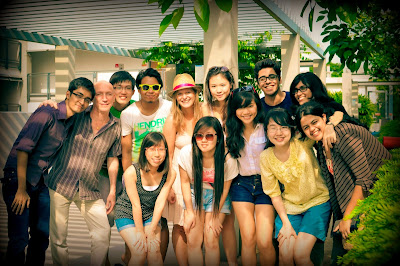In
the blink of an eye, 13 weeks have passed and our ES2007s journey has come to
an end. Honestly speaking, ES2007S is one of the modules that I have enjoyed the
most in NUS thus far. This module focuses on fostering interaction and developing interpersonal skills between
students. Most of the time, we have to either work in groups to come up with
ideas and present them to the class and after that, all the groups will give feedback to each other. I am from the school of computing and
faculty of engineering and this module very different from any of the modules
offered by these 2 faculties. I am not saying that the modules offered by the
SOC or FOE are bad, it is just the difference in the nature of the modules. Their
module are more content heavy and they have a more specific teaching guideline
whereas in ES2007, lesson plans seems more flexible and we just do not know
what to expect for the each lesson.
Next I must say that this module is very relevant to NUS students. Personally, I
had come across some people that graduated from university without even know how to
write a proper resume or cover letter. Therefore I think that the resume and cover
letter part of the module is very helpful to the NUS students especially those
who are applying for jobs or internship positions. Through this module, I also gained an insight on how the actual job interview is being carried out through the two
mock job interview sessions conducted during the lesson. We role-played both
the interviewer and interviewee to have a better understanding of what the interviewers are
looking for and also get to practice answering interview questions. This had
helped me to be able to better prepare for upcoming interviews in the near
future.
Lastly,
this module had given us ample chance to practice and improve on our
presentation skills. First, there is the peer teaching where we are split into
groups to come up with a short interactive lesson for the class. This not only
helped us improve our presentation skills but also our interpersonal skills as
we had to facilitate the class through the various interactive activities that
we had planned. I felt that this peer teaching is a really good way to let the
students practice interpersonal and presentation skills but the planning part is really time-consuming in my opinion. Next we had
our final oral presentation where we need to present our ideas to the class and
also at the same time, convince them to buy our ideas. This is not an easy task
and I think every group really did a great job for their final presentation.
And finally, I want to thank Brad for being such an excellent tutor and also
everyone in the class for making this module so fun and enjoyable. It is a great pleasure
to be able to work with all of you. All the best for the coming exams!

"Farewell! God knows when we shall meet again." – William Shakespeare

